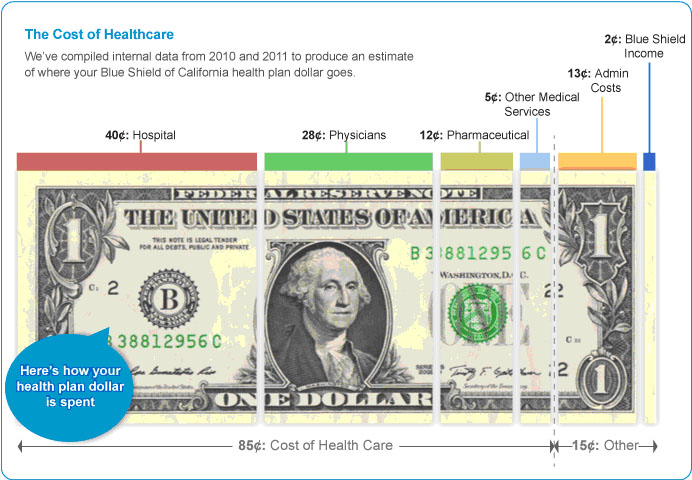Six (6) Easy Ways to Save Money on Health Care Costs – And Invest in Real Estate with the Savings
How much money do you spend on health care? Each day that goes by your overall health care costs go up (even though you don’t realize it) for a few reasons; 1) inflation, 2) you get older every day, and 3) unless you are exercising regularly you are getting in worse shape day-by-day. These three factors will drive up your long-term health care costs. No matter how prepared you are for your retirement years these costs will continue to rise unless you do something about them. I recently posted an article indicating the average American couple will spend $220,000 for health care costs during their retirement years – and introduced a real estate strategy to combat these costs. This figure does NOT include long-term care such as a nursing home or other retirement facilities. Please prepare for the future by looking at the short list below which can help you plan and reduce surprises.
1) Switch to Generic Drugs – Believe it or not generic drugs typically have the same active ingredients as name-brand drugs and in many cases are significantly less expensive (sometime even as much as 50% less). When you are placing your prescription orders ask your pharmacist if there is a generic option available. Also, research the drugs you are taking to see what they are, what generics are available, and what companies are improving these drugs. Are these drugs available on-line from a cheaper source? A little time spent on the computer can effectively reduce costs in this area.
2) Take Advantage of Wellness Benefits – Many employers offer incentives for participation in exercise and other health programs including paying for a gym membership. The more you exercise the higher probability your medical expenses will be reduced due to your healthier body. Getting away from the office during the day (to go exercise) can also promote a healthier mental outlook on your day, your life, and your perception of life. Go for a walk with a fellow employee, a colleague, or your boss.
3) Take Your Medications Regularly – Many costly hospital visits are for conditions (like asthma or high blood pressure) that were managed well with medications until they worsened when the patients skipped doses. Skipping medications can also result in deprivation and effectiveness of the drugs. Use a drug organizer with days of the week to help you keep track of your medications. Doing so will also help you develop healthy routines for other habits you are trying to change.
4) Eat More Vegetables – Vegetable intake is inversely correlated with diabetes incidence. Diabetes drives up insurance costs which reduces your disposable income. The more colorful your veggies, the more nutrients and more benefits. There are thousands of creative ways to prepare and consume veggies – go online and see all of the cool things you can do with them.
5) Don’t Smoke Anything – This one is obvious, however, with the increase in medical marijuana usage some people have forgot that smoke inhalation, no matter what type of smoke, is detrimental to your health, can cause cancer and other complications with your health. Also, second hand smoke from medical marijuana usage also has ill effects as well.
6) Exercise Regularly – Take Free Exercise Classes on YouTube, other online sources, or at the local YMCA. Check out http://www.tumblrgym.com/workout for 30 free workouts per month. Getting in shape will help reduce your health care costs more than anything else and it doesn’t cost any money to exercise.
Reducing the money you spend on health care can be a simple process of working checklist on a daily basis. Each day is another opportunity to reduce your overall health care costs. Eliminate or dramatically reduce the factors that drive up your long-term health care costs. No matter how prepared you are for your retirement these costs need to be dealt with on a consistent basis. Preparation is powerful – do something about these costs to help preserve your precious assets in retirement.





















